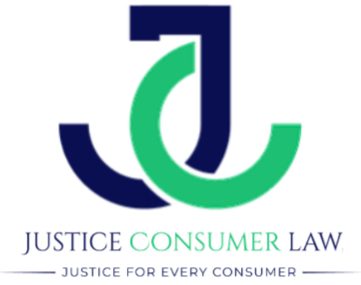Why Credit Report Accuracy Matters
Your credit report is more than just a list of accounts—it’s your financial reputation. Creditors, landlords, insurers, and even employers use it to make important decisions about your future. But when that report contains errors, it can cost you in real ways—from loan denials to higher interest rates. That’s why correcting credit report errors quickly and effectively is so important.
At Justice Consumer Law, we specialize in helping consumers identify, dispute, and resolve credit reporting mistakes through both traditional and legal channels.
Common Types of Credit Report Errors
A credit report error can happen more often than you think, and it may originate from creditors, collection agencies, or the credit bureaus themselves. Below are the most common errors found on consumer reports:
1. Identity Errors
- Wrong name, address, or Social Security number
- Accounts belonging to someone with a similar name
- Mixed or merged files from another person
2. Account Status Errors
- Accounts marked as late or delinquent when payments were made on time
- Closed accounts reported as open
- Incorrect account balances or credit limits
3. Data Management Mistakes
- Duplicate entries for the same debt
- Reinserted information that was previously corrected
- Accounts are incorrectly listed as sent to collections or charged off
4. Fraudulent or Unauthorized Accounts
- Accounts opened through identity theft
- Unrecognized credit inquiries
- Unfamiliar creditors appearing on the report
These errors can drastically lower your credit score and result in serious consequences if left unaddressed.
Your Legal Rights Under the Fair Credit Reporting Act (FCRA)
The FCRA is the federal law that governs how credit reporting agencies and creditors must handle your information. It gives you the right to:
- Access your credit report annually from each bureau
- Dispute incorrect or outdated information
- Have errors investigated and resolved within 30 days
- Sue credit bureaus and creditors for willful noncompliance
Justice Consumer Law helps you enforce these rights when they’re ignored.
How to Correct Credit Report Errors
Correcting an error involves a structured process. Here’s how to do it effectively:
Step 1: Get Your Credit Reports
You can access free copies from:
- AnnualCreditReport.com
- Directly from Equifax, TransUnion, and Experian
Check all three reports—errors might appear on one but not the others.
Step 2: Identify the Mistakes
Review every section of your report, including:
- Personal information
- Account history
- Credit inquiries
- Collections
- Public records
Mark all discrepancies and keep records.
Step 3: Gather Supporting Documentation
You’ll need evidence to back your dispute, such as:
- Payment receipts or statements
- Letters or emails from lenders
- Police reports for identity theft
- Account closure confirmations
The more complete your file, the stronger your dispute.
Step 4: File a Dispute with the Credit Bureau
Submit your dispute in writing or online, clearly stating:
- The error
- Why is it incorrect?
- What documentation are you providing?
The credit bureau is required to investigate and respond within 30 days.
Step 5: Contact the Furnisher
The “furnisher” is the company that provided the incorrect data, like a bank or collection agency. Notify them in writing with the same information you gave the bureau.
What If the Dispute Is Denied or Ignored?
When the System Fails
Even though the FCRA mandates a thorough investigation, many consumers find their disputes are rejected for vague reasons, such as “information verified” without an honest review. If this happens, you don’t have to fight alone.
Legal Action May Be Necessary
If credit bureaus or furnishers fail to:
- Investigate your dispute
- Remove false information
- Notify you of the result
You may be entitled to monetary damages and attorney fees.
How Justice Consumer Law Can Help
We don’t just help you file disputes—we hold credit bureaus accountable when they violate the law.
What We Offer:
✅ Legal Review of Your Case
Our attorneys evaluate your situation to determine FCRA violations and whether a lawsuit is appropriate.
✅ Dispute and Resolution Services
We draft dispute letters and ensure you meet all legal standards for evidence and timing.
✅ Litigation and Compensation
If your rights are violated, we will pursue legal action on your behalf to secure financial compensation and correct the record.
✅ Ongoing Support
We provide advice on protecting your credit in the future, including tips on monitoring your reports and responding to future errors.
Tips to Avoid Credit Report Errors in the Future
1. Check Reports Regularly
Get reports from all three bureaus at least once a year—or more frequently if you’re applying for a loan or job.
2. Set Up Credit Monitoring
Use services that alert you to new inquiries, account changes, or identity theft red flags.
3. Freeze Your Credit
If you suspect identity theft, place a security freeze on your reports to prevent new accounts from being opened in your name.
4. Respond Quickly to Notices
Act fast when you receive collection letters, default notices, or creditor emails. The sooner you respond, the easier it is to resolve problems.
Final Thoughts: Protect Your Financial Reputation
A small credit report error can lead to major problems—missed mortgage approvals, rejected job offers, or even lawsuits. But you don’t have to face it alone.
Justice Consumer Law provides the legal power you need to correct your record and hold bad actors accountable. If the credit bureaus won’t listen, we’ll make sure the courts do.
Don’t Let Credit Errors Define You
If you’re struggling with inaccurate credit reporting, let our legal team step in. We’ve helped countless clients dispute false data and recover damages from negligent bureaus and creditors.
